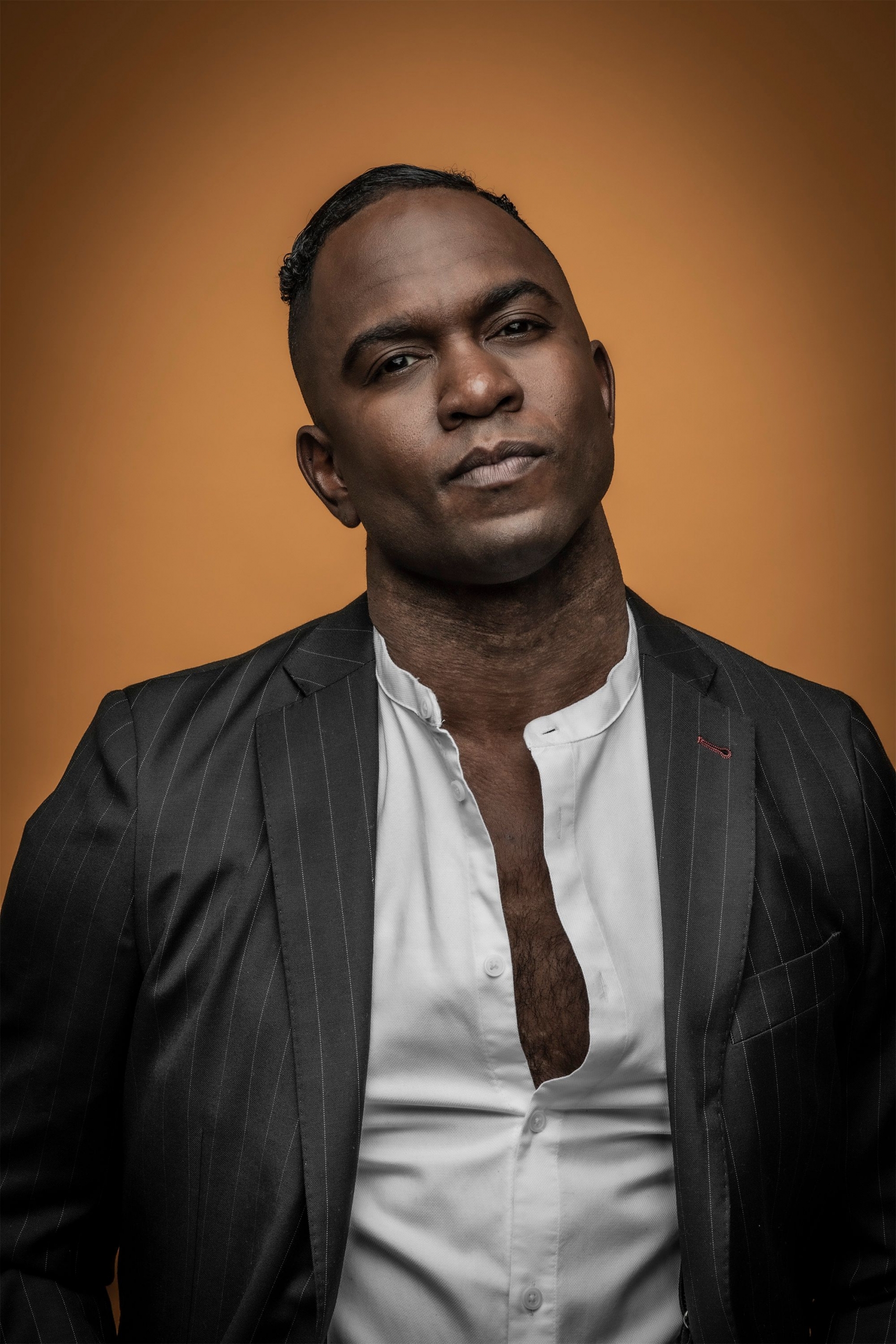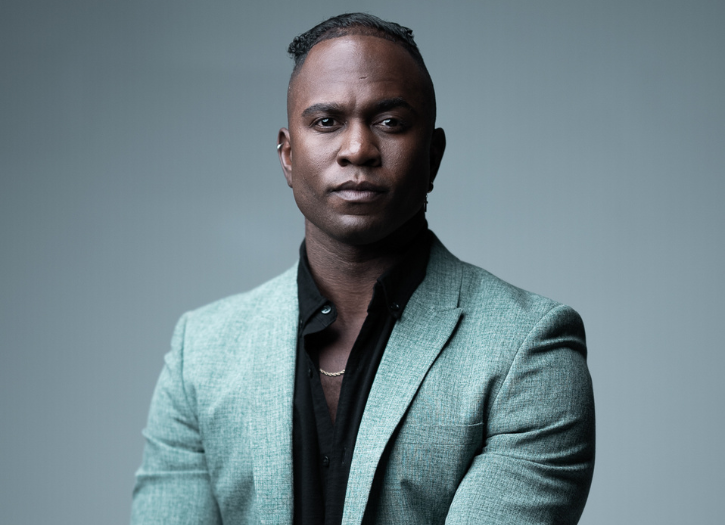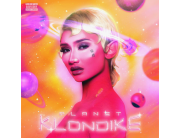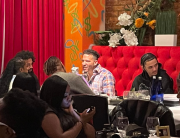Lawrence plays Silas Jones and makes his debut as Producer in the highly acclaimed short film, Silent Partner!
When it comes to art as a representation of the struggles that we face as African Americans, we can find work that most of us are able to connect to all around us. Many stories have been told through music, film, television, and across stages that shine a light, even if just a little, onto the inherited coarseness of life that comes with being a black or brown human.
These stories are our voices. For actor, artist, and now, producer, Roderick Lawrence, it was important to add volume to our voices from a different perspective. Having always known the importance of the artistic representation of his people, Lawrence took the time spent during the pandemic to, as many of us did, do some self-reflecting, and from that, he gave birth to new gifts, and from that came the short film, Silent Partner.
The short film, which has been featured in countless festivals and screenings, has forced an eye toward a kind of story that has not been as readily represented for men and women of color. In the film, Lawrence plays Silas Jones, an African American attorney working as part of a predominantly white law firm and he is given what is cleverly disguised as an opportunity, one whose outcome will have a fallout, no matter what he decides. Jones is at an extremely difficult crossroads. Which way will he go?
Roderick Lawrence shares with us the film’s inspiration and what he learned about himself during the process.
Give us a little background on you and your career up to this point.
I went to the Baldwin Wallace Conservatory of Music and studied music theater and after that, I moved to New York and got started in theater and did some things in theater, did some things in TV and things like that and then I got the Lion King and I was on tour with the Lion King for a year and a half. Since then I have been doing a lot of theater and TV things here and there. There was a new show that was scheduled to come out, directed by Phylicia Rashad, then COVID came about and that project ended and it was during COVID that I did Silent Partner.
Tell us a little more about the short film, Silent Partner, and your character, Silas Jones.
Silent Partner is about my own life experiences and every other black male or female’s life experiences when it comes to dealing with microaggressions in your workplace and your life. For me, I went from not knowing what microaggressions were to realizing that they were kind of taking over my life. Everything else from my own growth to studying to therapy kind of made me realize that.
What I realized most was that I was most active in our fight as a community through art and storytelling because it allows me to bring up things like black male mental health and workplace aggression and microaggressions and all of these things by making a story that is relatable and authentically and truthfully represents us. The story follows a black lawyer follows Silas Jones, an African American lawyer who successfully defends a white woman who had killed a black child. In winning this case, he is promoted to partner, which was his dream, and throughout the night he begins to question himself and what he is and is not willing to sacrifice in pursuit of achievement.
In the creation and promotion of this film, do you feel as though you have been impacted differently as you see the impact that it has on others?
I feel grateful that I think we did our job in that we represented our people well and triumphantly. I feel emotionally heightened in that way because the only thing that matters to me is that we felt respected and we felt represented truthfully. The work spoke waves and it opened the conversations that it needed to. I cannot count the number of people at each screening that have come up to me and thanked me because are just fighting for some form of representation that is not always from ‘out the mud’.
What do you feel that you learned about yourself throughout this process?
I learned that I can produce a movie, which is cool. I did not know that before. I was in church not long ago and the pastor said that if you are unstoppable at manifesting using your God-given gifts, in that unstoppable nature, sometimes it leads you to learn about new gifs that you did not know you had. I tell people often that I am not a producer or writer or all of those things because I believe in the genius that is in being all of those things. With that being said, in all of that, I realized that I can do a lot of different things as I manifest the dreams and goals that I have and can use these things to create jobs and opportunities on top of the representation. On top of everything else that the film did, we also created fifty jobs for black and brown people during the global pandemic so I learned how to best use my gifts and how to let my gifts help all of us.
As a part of your vision, can you see Silent Partner going beyond being a short film?
That is what we are working on right now. We are working on getting the funding for the full-length feature that we hope to begin shooting during the fall of this year.
Tell me how you feel about the Oscar buzz that surrounded Silent Partner.
It was a blessing and super humbling to create something that was qualified for the Oscars. I can tell you truthfully from jump to finish that I never had that in mind and not because I think that it is something that we do not deserve or that I cannot do but because I do not believe in putting accolades or acknowledgments into a part of my why for doing anything because it does not serve the truth of the piece. We did make the Oscar shortlist and it was really wild. We went to a lot of great Oscar-qualified festivals and it has all been really amazing and really a blessing. It has all been a super, amazingly fulfilling journey.

On the official website for the film Silent Partner, Roderick states, “ I am a young Black man in America who is working in systemically racist institutions filled with conscious and unconscious biases. I created this film to express my point of view and the POV of other Black men and women who for generations have been held back by others, under the guise of kindness and helpfulness, yet kept under an unyielding yoke that treats us as less than equal”.







Add Comment